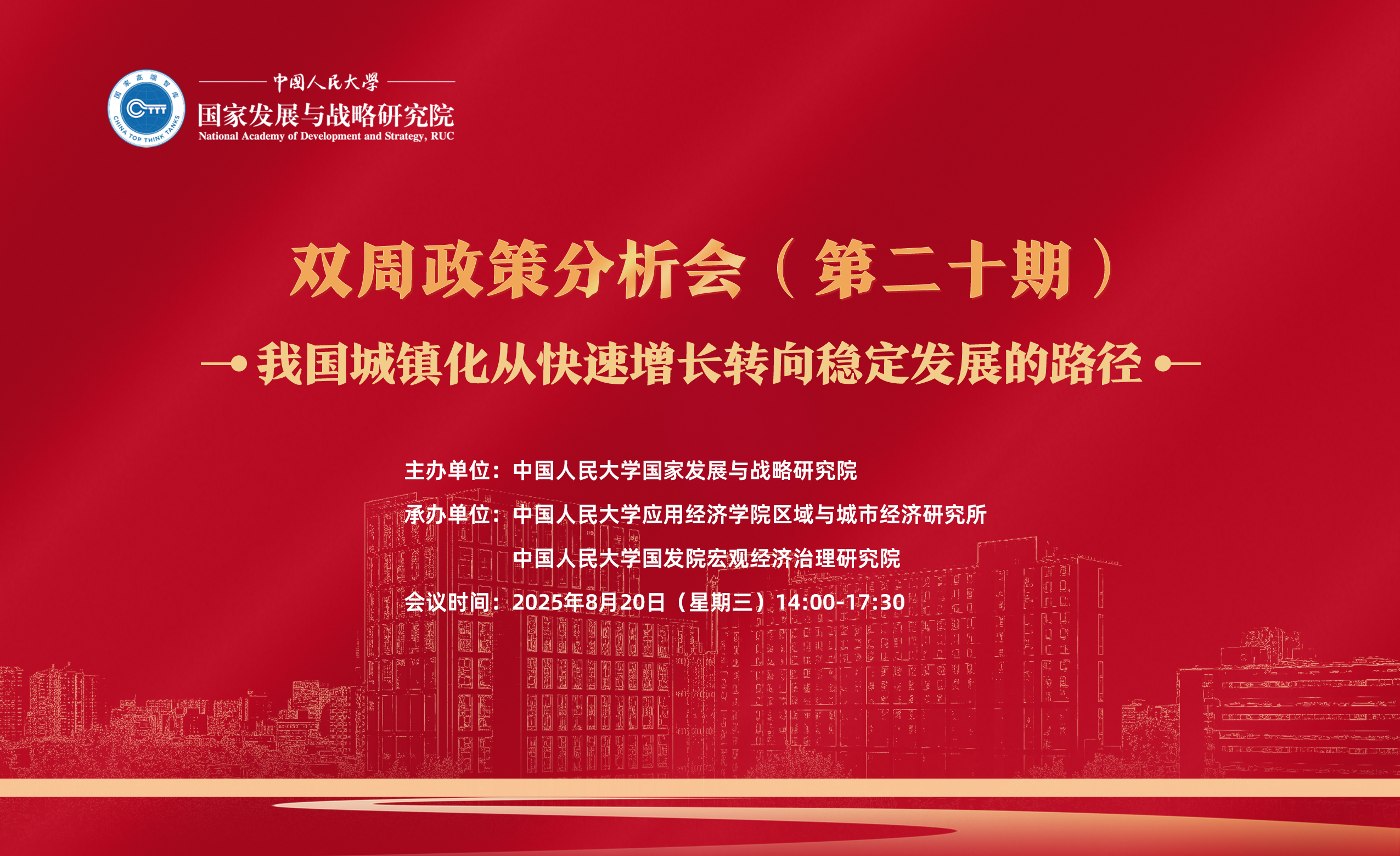 Research Update
Research Update
27
Aug
On August 20, 2025, the 20th Biweekly Policy Analysis Meeting, titled “The Path of China’s Urbanization from Rapid Growth to Stable Development”, was held. The event was hosted by the National Academy of Development and Strategy (NADS) at Renmin University of China (RUC), and co-organized by the Institute of Regional and Urban Economics of RUC’s School of Applied Economics, together with the Institute for Macroeconomic Governance of NADS. The forum was chaired by Professor SUN Jiuwen, Research Fellow at NADS and Professor at the School of Applied Economics, RUC. Experts and scholars in attendance engaged in in-depth discussions around the theme.
The experts noted that China’s urbanization is at a critical juncture, shifting from a phase of rapid expansion to a new stage of stable development. This transition not only affects the sustainability of economic growth but also directly influences the optimization of social structures and the improvement of people’s livelihoods. Ensuring the stable and healthy development of urbanization carries major strategic significance for building a new development paradigm and advancing common prosperity in a solid manner.
In this regard, the experts proposed the following recommendations for the stable development of urbanization.
Transforming the growth model
Government departments should abandon the previous reliance on land expansion and demographic dividends, shifting instead to an intensive development model centered on quality improvement and structural optimization.
Adopting differentiated strategies
Urbanization should follow the principle of adapting measures to local conditions and providing categorized guidance, implementing differentiated development strategies based on the stage of development and resource endowments of different regions and cities of varying scales, and avoiding “one-size-fits-all” policies.
Deepening institutional reforms
Advance reforms linking “people, land, and finance”, improve mechanisms for rural land exit and urban cost-sharing, and remove barriers to urban residency.
Optimizing spatial layout
Strictly control the supply of new construction land, revitalize inefficient and underutilized industrial land, and promote coordinated development among urban clusters, metropolitan areas, and counties, thereby building a multi-centered and networked urban system.
Fostering new development driving forces
Cultivate new quality productive forces through technological innovation and industrial upgrading, while simultaneously strengthening urban governance capacity to build green, smart, and resilient new cities.
(The above views are compiled from the statements made by participants at the 20th Biweekly Policy Analysis Meeting held on August 20, 2025. It is intended solely for academic exchange and does not represent the views of the National Academy of Development and Strategy, Renmin University of China.)
Proofreaders: SUN Jiuwen, ZOU Jingxian
Translator: ZHANG Yuqing
Web Editor: ZHANG Jingjing
The “Biweekly Policy Analysis Meeting” is a high-level policy research and exchange platform established by the National Academy of Development and Strategy (NADS) at Renmin University of China. Its aim is to promote the development of NADS as a top-tier think tank characterized by a “new platform, extensive network, interdisciplinary integration, innovation-driven and high output” model through comprehensive research, analysis, and evaluation of public policies. By bringing together high-quality resources from within and outside the university, including those from government, industry, and academia, the platform strives to offer “Renmin University’s perspectives” on major policy issues across fields such as politics, economy, society, culture, ecology, law, and foreign affairs.